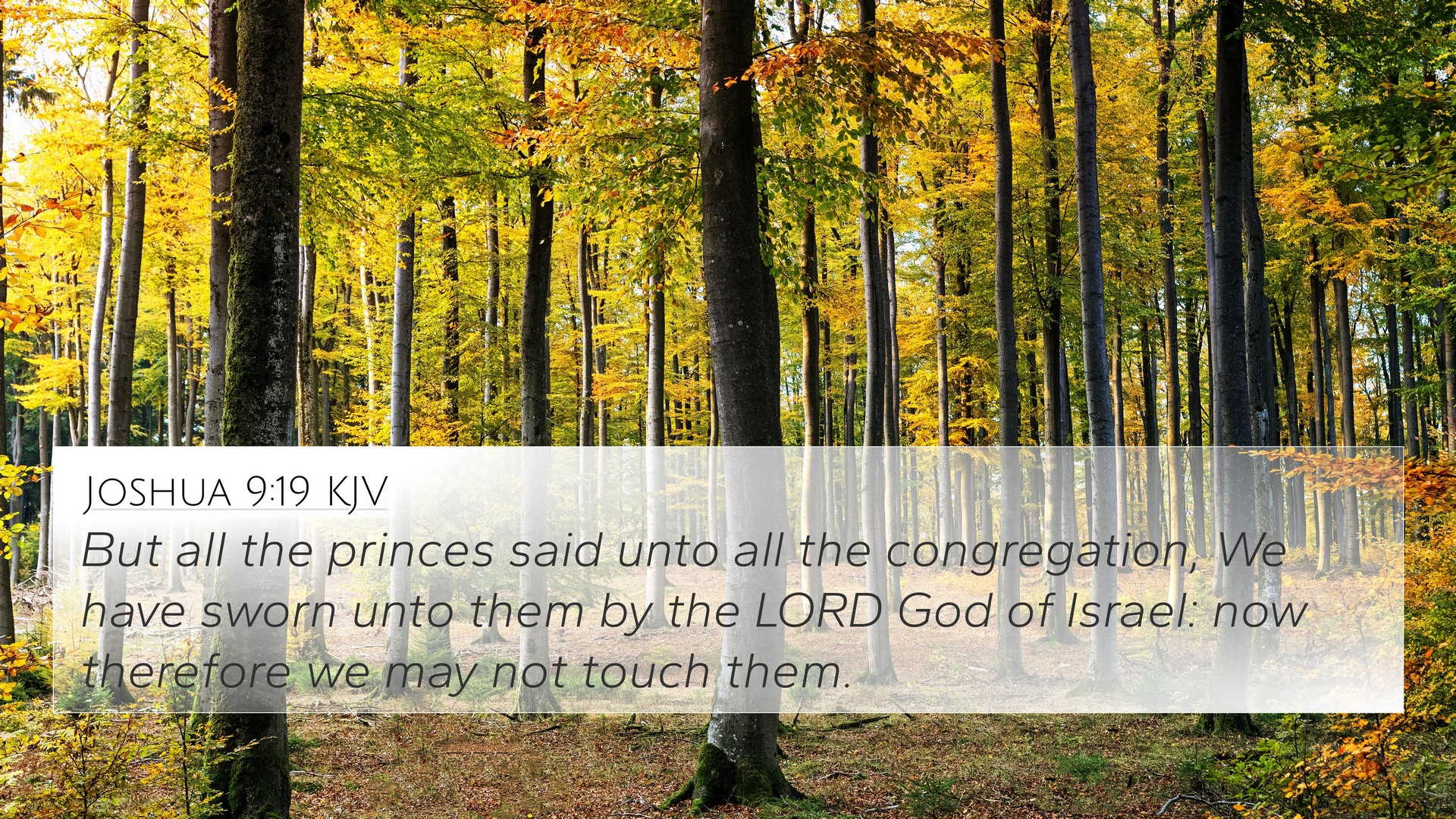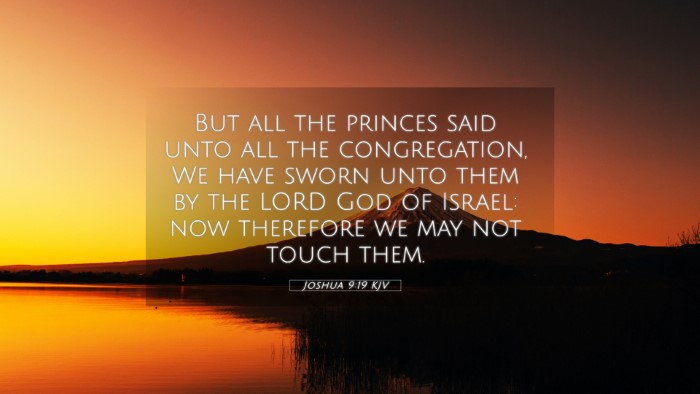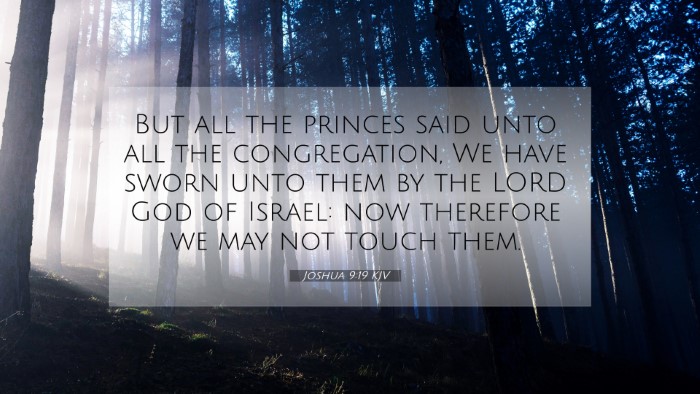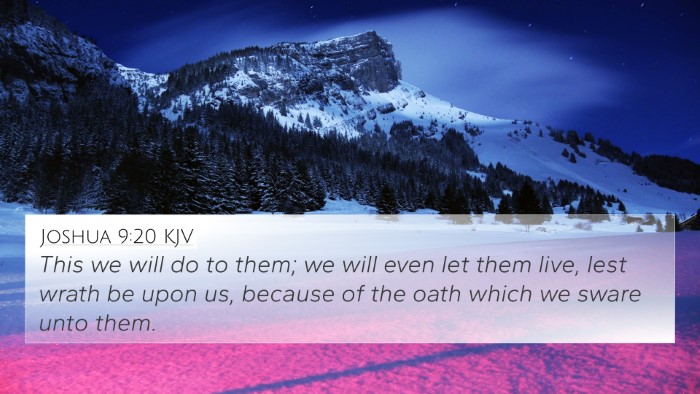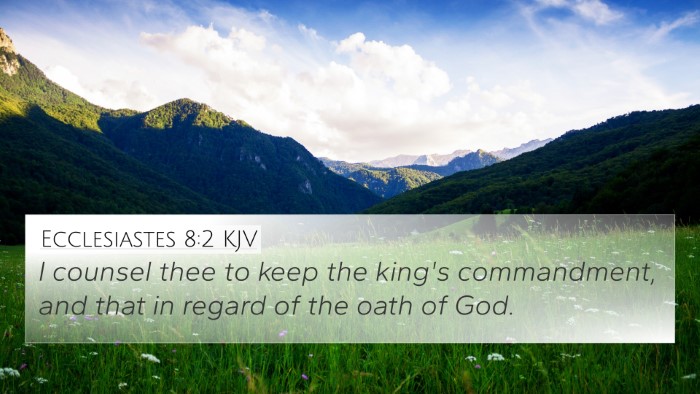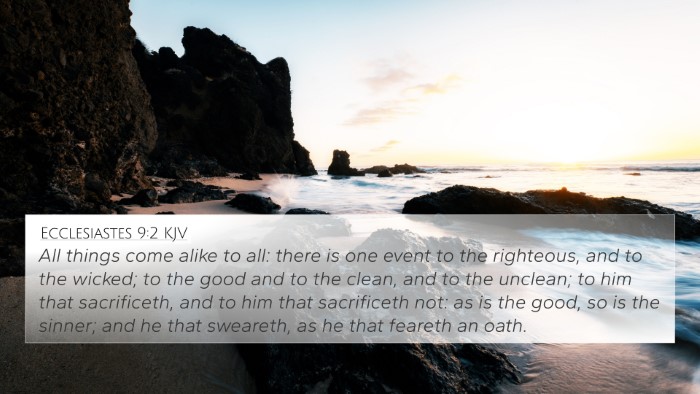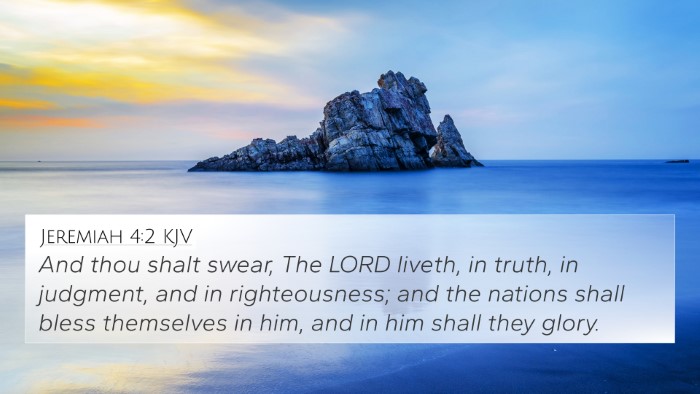Understanding Joshua 9:19
Joshua 9:19 states: “But all the princes said unto all the congregation, We have sworn unto them by the LORD God of Israel: now therefore we may not touch them.” This verse occurs in the context of the Israelite leaders’ decision-making regarding the Gibeonites, who had deceived them into making a treaty.
Meaning and Explanation
The response of the Israelite princes here illustrates their commitment to the vow they had made before God, emphasizing the seriousness of oaths and agreements made in faith. This reflects a broader Biblical theme concerning the sanctity of one's word and the covenantal obligation they carry.
Key Themes
- Covenant and Oaths: The significance of keeping promises is a recurring theme throughout the Bible, exemplified in Numbers 30:2 where the Lord commands the importance of fulfilling vows.
- Divine Guidance: While the leaders made a treaty with the Gibeonites, they did so without consulting God first, which leads to discussions on the need for divine wisdom in decision-making (see Proverbs 3:5-6).
- Grace in Betrayal: The Gibeonites' deceit raises questions about how God operates in the midst of human flaws. This ties back to Romans 3:23, “for all have sinned and fall short of the glory of God.”
Commentary Insights
Matthew Henry
Matthew Henry remarks on the moral obligation tied to the oath taken, suggesting that fidelity to one's word, especially under God's name, is paramount. The verse serves as a lesson that despite circumstances, keeping one's promises is of utmost importance.
Albert Barnes
Barnes highlights the implications of this decision, noting that the elders recognize their mistake yet prioritize their commitment to the covenant they made. This points to an understanding of righteousness rooted in having made the covenant before God.
Adam Clarke
Clarke adds that the situation reflects the broader narrative of Israel's need for unity in obedience to God’s law. The princes knew that breaking an oath made in the name of God would have catastrophic spiritual and social repercussions.
Cross-References
Several verses link to the themes presented in Joshua 9:19, providing a deeper understanding through inter-Biblical dialogue. Here are 10 relevant Biblical cross-references:
- Numbers 30:2 - Importance of fulfilling vows.
- Deuteronomy 23:21 - Warning about making vows to God.
- Proverbs 20:25 - Considering vows before making them.
- Psalms 50:14 - Paying vows to the Most High.
- Matthew 5:33-37 - Teaching on oaths by Jesus.
- Ecclesiastes 5:4-5 - The necessity of keeping vows made.
- Romans 12:18 - Living at peace with all, reflective of the oath’s importance.
- Hebrews 6:16 - The seriousness of an oath in human dealings.
- James 5:12 - Encouragement about swearing an oath.
- Galatians 6:7 - The law of sowing and reaping, reflecting on moral actions.
Thematic Analysis
In analyzing Joshua 9:19 within the Christian scripture, one can observe several theological themes:
- Integrity: The verse underlines the principle of integrity in promises, showing how vital it is for believers to remain true to their word.
- Consequences of Deceit: The situation with the Gibeonites highlights the consequences that can arise from deceit and how God can still work through flawed situations.
- God's Sovereignty: Although the Israelites acted rashly, God's overarching plan is still being fulfilled, reminding us that He can work through our mistakes.
Using Bible Cross-Reference Tools
For those seeking to delve deeper into the connections between scriptures, there are various tools and methods for cross-referencing. Here are some tips:
- Bible Concordance: Utilize a concordance for locating verses related to specific keywords or themes.
- Bible Cross-Reference Guide: These guides can help illustrate connections between verses across the Old and New Testaments.
- Cross-Reference Bible Study: Engage in Bible study methods that encourage tracking themes and promises through scriptural cross-referencing.
Conclusion
Joshua 9:19 serves as a powerful reminder of the ethical obligations we have in our commitments, particularly those made in God's name. The collective insights from public domain commentaries, coupled with the rich tapestry of cross-references, reveal the intricate ways scripture interacts with itself and with our lives today. Engaging with these texts through cross-referencing not only enhances our understanding but also deepens our relationship with the Lord. For anyone looking to deepen their biblical knowledge or for sermon preparation, understanding how to find cross-references in the Bible is a valuable practice.
